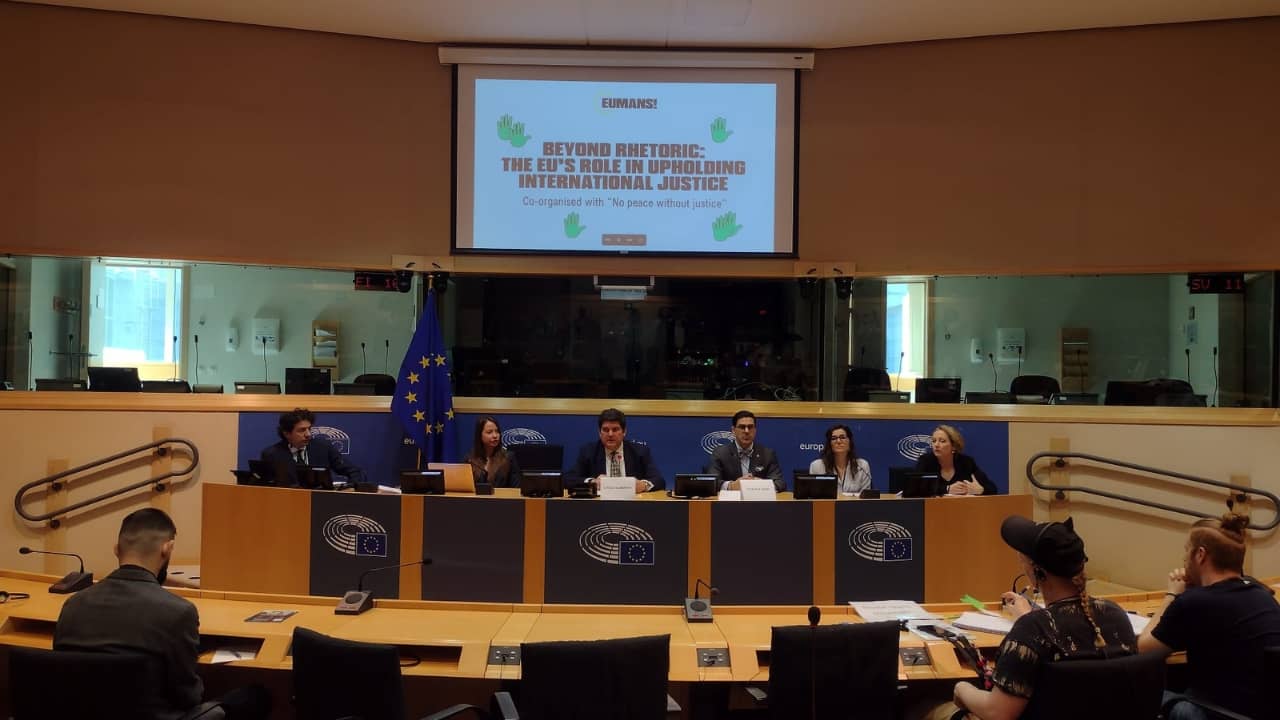Accession was due to enter into effect on 1 June
Parliamentarians for Global Action (PGA) has been observing with respect the internal debate that has taken place in Malaysia after the decision taken by the Cabinet to accede to the Rome Statute of the ICC since the end of 2018, followed by the deposit of the instrument of accession at the UN on 4 March 2019 and by today’s Cabinet decision to withdraw the said instrument before its entry into force on 1 June.
In Malaysia, being a parliamentary democracy with a federal constitutional monarchy, the Constitution vests the nominal executive authority of the Federation to the King (Yang di-Pertuan Agong). However, the King is bound to act in accordance with the advice of the Cabinet (or of a Minister acting under the general authority of the Cabinet), headed by the Prime Minister. The King, as the Head of State, is bestowed with functions relating to representation and limited discretionary powers under the Constitution.
It is the understanding of PGA that the Rome Statute of the International Criminal Court (ICC) does not limit in any manner the constitutional prerogatives of the Monarch. As stated by representatives of the Malaysian Executive, the Monarch was duly informed of the Cabinet decision ahead of the implementation of the decision, and did not object. The Executive waited more than two months to implement the decision. Conversely, media sources reveal that the committee of the Conference of Rulers (Sultans) – a collegiate sui generis body that includes the rotating King – should have been asked to approve the decision to accede to the Rome Statute on the purported argument that the Statute amounts to a limitation of the Rulers’ privileges. As explained by the Foreign Minister and other Malaysian authorities, including the highest legal officer of the State (the Attorney General, who is not a member of Cabinet), the Rome Statute of the ICC does not entail any inconsistency or incoherence with the Malaysian Constitution and does not erode any privilege of the Rulers.
The Prime Minister of Malaysia announced at the September 2018 session of the UN General Assembly that the new Government of Malaysia would have joined international human rights treaties. This has spurred a national debate started in Malaysia regarding the International Convention on the Elimination of all forms of Racial Discrimination (ICERD), the ratification of which might indeed have an impact on certain provisions of the Malaysian Constitution that recognize, in a distinct manner, diverse racial or ethnic groups. In a recent statement, a member of the Conference of Rulers conflated the two treaties and labelled the Prime Minister as potentially liable if the Constitution would have been violated by joining the Rome Statute and the ICERD.
PGA calls the Prime Minister of Malaysia and its Cabinet to reconsider today’s decision, which appears to be the result of misunderstandings and confusion. In doing so, it is humbly submitted that the following arguments may be considered:
-
The Rome Statute protects the victims of genocide, crimes against humanity, war crimes and aggression: As such, it does not collide with any provision of the Malaysian Constitution. Conversely, it provides with an additional guarantee that justice will be rendered when the most serious crimes of concern that shock the consciousness of humankind are committed, including when victims are Muslims. Therefore, the purported threat posed by the Rome Statute to Islam is absolutely incorrect and is the consequence of false information. In fact, several Muslim-majority States are parties to the Rome Statute of the ICC, which counts on 122 member states.
-
The Rome Statute is an international treaty that can be lawfully ratified by an act of the Executive under the Constitution of Malaysia. Given that it does not modify or alter any constitutional provision within the Malaysian legal order, any reference to treason or other cause for dismissing the democratically elected Government in the absence of consent by the Conference of Rulers is unfounded and appears instrumental to the opposition to other treaty ratification processes.
-
Parliament shall be engaged in the discussion on the Rome Statute with the specific purpose to consider draft legislation aimed at implementing the Rome Statute provisions into national law: Such a debate may bring about the enactment of legislation that will also certainly implement fundamental principles of justice contained in the Malaysian Constitution, hence clearing the way for any possible misunderstanding or mischaracterization of legal norms and obligations.
In light of these points, Parliamentarians for Global Action respectfully submits that the Government of Malaysia reverse or, at least, suspends the effects of today’s decision on withdrawal from the notice of accession deposited on 4 March, which will not be in force until 1 June 2019, and await that Parliament considers the relevant legislation before giving effect to an informed and final decision about remaining in, or exiting from, the Rome Statute system against impunity for the most serious international crimes.






